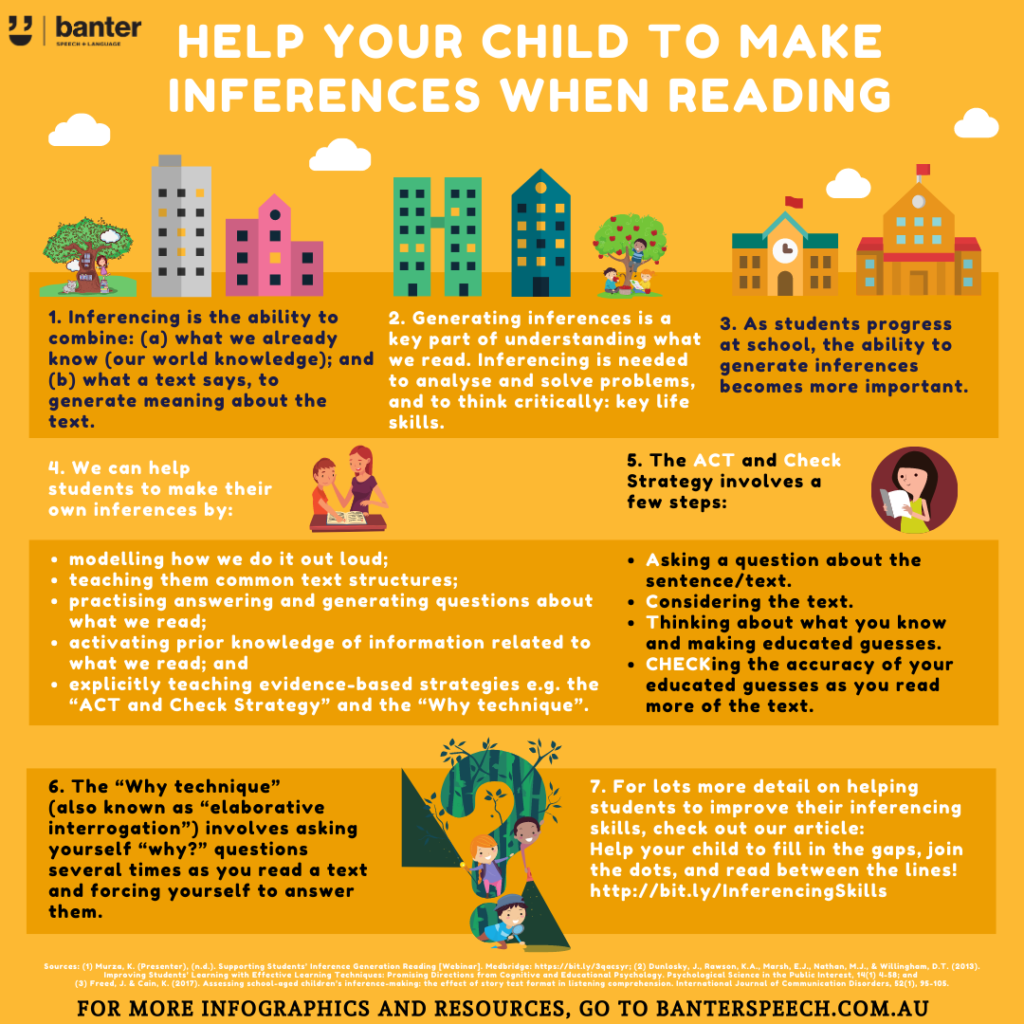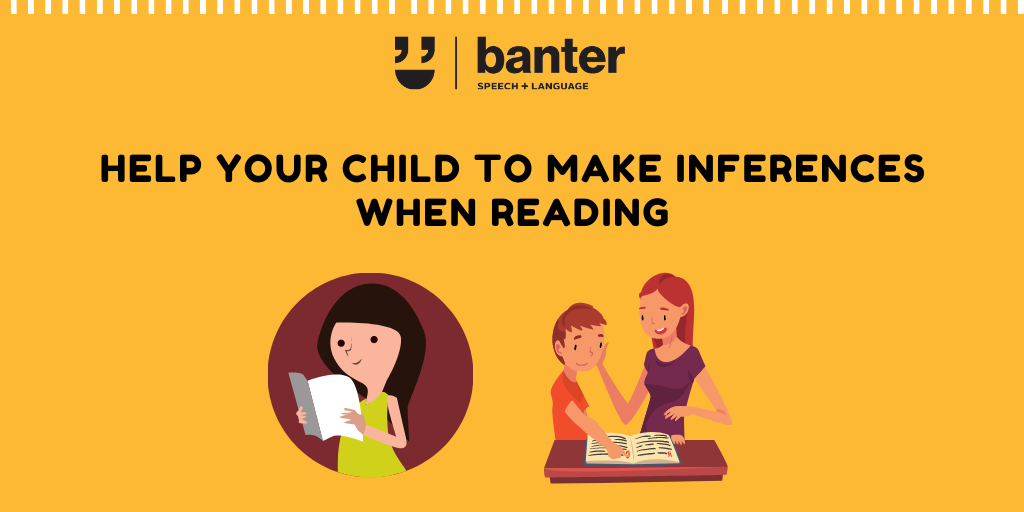Inferencing – the ability to join the dots or to read between the lines – is a key life skill.
In this week’s infographic, our speech pathologist, Emma Robinson, outlines what we can do to help students of all ages to learn how to do it.
1. Inferencing is the ability to combine: (a) what we already know (our world knowledge); and (b) what a text says, to generate meaning about the text.
2. Generating inferences is a key part of understanding what we read. Inferencing is needed to analyse and solve problems, and to think critically: key life skills.
3. As students progress at school, the ability to generate inferences becomes more important.
4. We can help students to make their own inferences by:
- modelling how we do it out loud;
- teaching them common text structures;
- practicing answering and generating questions about what we read;
- activating prior knowledge of information related to what we read; and
- explicitly teaching evidence-based strategies e.g. the ‘ACT and Check Strategy’ and the ‘Why technique’.
5. The ACT and Check Strategy involves a few steps:
- Asking a question about the sentence/text.
- Considering the text.
- Thinking about what you know and making educated guesses.
- CHECKing the accuracy of your educated guesses as you read more of the text.
6. The ‘Why technique’ (also known as ‘elaborative interrogation’) involves asking yourself ‘why?’ questions several times as you read a text and forcing yourself to answer them.
7. For lots more detail on helping students to improve their inferencing skills, check out our article.

Sources:
(1) Murza, K. (Presenter), (n.d.). Supporting Students’ Inference Generation Reading [Webinar]. Medbridge: https://bit.ly/3qacsyr.
(2) Dunlosky, J., Rawson, K.A., Marsh, E.J., Nathan, M.J., & Willingham, D.T. (2013). Improving Students’ Learning with Effective Learning Techniques: Promising Directions from Cognitive and Educational Psychology. Psychological Science in the Public Interest, 14(1) 4-58.
(3) Freed, J. & Cain, K. (2017). Assessing school-aged children’s inference-making: the effect of story test format in listening comprehension. International Journal of Communication Disorders, 52(1), 95-105.
Related articles:
- Help your child to fill in the gaps, join the dots, and read between the lines! (Improve inferencing skills for better reading language comprehension)
- Are reading comprehension problems caused by oral language deficits?
- “I don’t understand what I’m reading” – reading comprehension problems (and what to do about them)

Hi there, I’m David Kinnane.
Principal Speech Pathologist, Banter Speech & Language
Our talented team of certified practising speech pathologists provide unhurried, personalised and evidence-based speech pathology care to children and adults in the Inner West of Sydney and beyond, both in our clinic and via telehealth.

